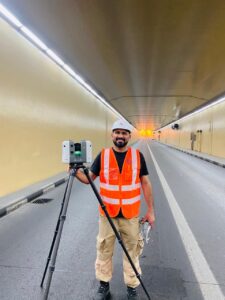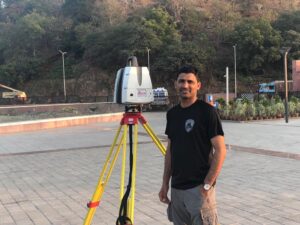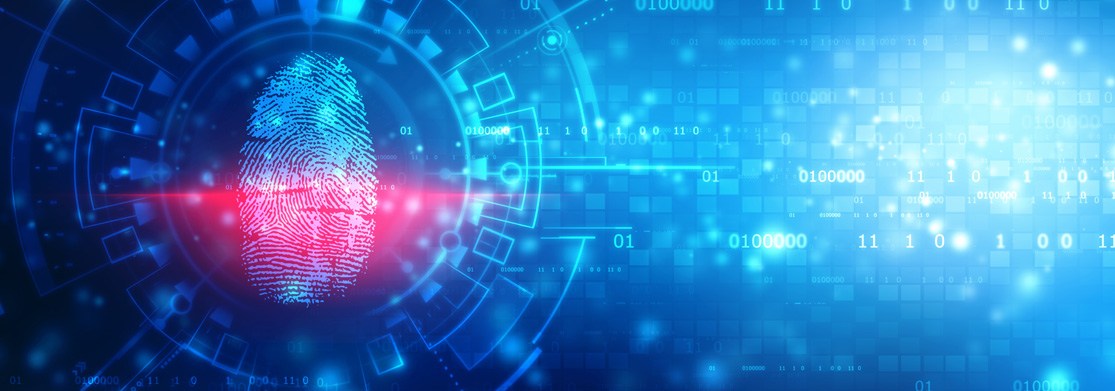In the fast-evolving world of forensic science, innovation alone isn’t enough. Visionary leadership is the key to driving technological advancement while ensuring that science serves justice with ethics and integrity. As we move through 2025, the forensic landscape is rapidly transforming, powered by artificial intelligence, big data, biometrics, and virtual investigations. Yet at the core of this revolution is leadership—individuals who bridge science, governance, and strategic policy.
One such leader is Dr. Satendra Kumar, a distinguished forensic expert with over 16 years of experience across government, public-sector, and corporate domains. His work spans senior sales management, forensic advisory, technical leadership, and national projects like AADHAR. But beyond his credentials lies a deeper contribution: a vision for forensic technology that is data-driven, people-centric, and ethically sound.
1. The Changing Face of Forensics
 In 2025, forensic science is no longer limited to labs filled with test tubes and microscopes. It now includes cloud forensics, biometric surveillance, cybercrime analysis, and AI-powered case-solving platforms. Investigators are using machine learning to reconstruct crime scenes, and DNA databases are integrated into national criminal grids.
In 2025, forensic science is no longer limited to labs filled with test tubes and microscopes. It now includes cloud forensics, biometric surveillance, cybercrime analysis, and AI-powered case-solving platforms. Investigators are using machine learning to reconstruct crime scenes, and DNA databases are integrated into national criminal grids.
This rapid evolution creates both opportunity and complexity. Leadership is needed not only to keep up with innovation, but also to ensure that it is integrated into real-world investigative frameworks effectively and responsibly.
2. Dr. Kumar’s Role in National-Scale Forensic Integration
One of Dr. Kumar’s most notable achievements is his forensic advisory role in the AADHAR project, the world’s largest biometric ID system. His technical and policy insights helped shape secure identity verification protocols used by over a billion citizens.
His role demonstrated how leadership in forensic technology can support national infrastructure—not just criminal justice. From fraud detection to secure service delivery, Dr. Kumar helped align biometric authentication with real-world applications in public safety and governance.
Learn more about AADHAR’s biometric framework
3. Championing Digital and Cyber Forensics
Cybercrime is the fastest-growing category of crime in the world, and India is no exception. From ransomware to data theft, digital crimes require highly specialized investigative skills.
Dr. Kumar’s leadership has emphasized building robust digital forensics teams capable of:
- Extracting and analyzing digital evidence across devices and platforms
- Using metadata and behavioral analysis to detect fraud or digital impersonation
- Conducting real-time investigations involving IP tracing, social media surveillance, and dark web monitoring
He has advocated for investment in cybersecurity infrastructure and training programs that empower investigators to stay ahead of cybercriminals.
4. Empowering the Next Generation: Training and Mentorship
 Dr. Kumar believes that technology is only as powerful as the people who operate it. To that end, he has consistently mentored young forensic scientists and police personnel. His training programs focus on:
Dr. Kumar believes that technology is only as powerful as the people who operate it. To that end, he has consistently mentored young forensic scientists and police personnel. His training programs focus on:
- Technical skills (e.g., DNA forensics, mobile data extraction)
- Legal procedures and chain-of-custody management
- Ethical considerations in digital surveillance and AI tools
In 2025, with new technologies being adopted at lightning speed, such training is more important than ever. Dr. Kumar’s approach emphasizes hands-on experience, case-based learning, and international standards—a blueprint for developing forensic capacity in developing and emerging economies.
5. Promoting Ethics in the Age of Surveillance
With the rise of facial recognition, AI-based predictive policing, and biometric monitoring, the line between investigation and intrusion is thin. Dr. Kumar is a strong advocate for ethical boundaries for leadership in forensic technology.
He stresses the importance of:
- Ensuring consent and legal authorizations in biometric data collection
- Avoiding AI bias in predictive analytics and facial recognition
- Transparency in data use, particularly when evidence is used in court
His leadership philosophy is clear: Technology must serve justice without compromising civil liberties.
Read more about AI ethics in forensics
6. Global Collaboration and Standardization
Forensic crime doesn’t stop at borders—and neither should forensic innovation. Dr. Kumar has collaborated with international agencies and forensic institutions to promote cross-border knowledge exchange. He advocates for standardization in forensic practices, especially in:
- Evidence processing protocols
- DNA databasing methods
- Cybersecurity regulations and digital chain of custody
His vision is to help Indian forensic science align with ISO standards and global best practices, ensuring international admissibility and cooperation in transnational investigations.

7. Technology-Driven Case Solving
In recent years, India has witnessed several high-profile cases where forensic evidence played a decisive role. Under Dr. Kumar’s guidance, forensic labs have adopted technologies such as:
- 3D crime scene scanning for courtroom visualization
- Automated fingerprint recognition systems (AFIS)
- Real-time mobile forensic kits for on-site evidence collection
These technologies have significantly reduced investigation timelines and increased conviction rates. Dr. Kumar’s emphasis on quick but accurate forensic response is helping law enforcement agencies function more efficiently.
8. A Vision for the Next Decade
 Dr. Satendra Kumar’s vision doesn’t stop at 2025. Looking forward, he sees forensic science playing a central role in:
Dr. Satendra Kumar’s vision doesn’t stop at 2025. Looking forward, he sees forensic science playing a central role in:
- Predictive policing using behavioral forensics and AI
- Integrated forensic databases across jurisdictions
- Virtual courtrooms supported by immersive crime scene reconstructions
His vision is not just scientific—it’s societal. He sees forensics as a guardian of justice, ensuring fairness, accuracy, and speed in a world where truth can be blurred by misinformation and technology misuse.
Conclusion: A Leader for Our Times
Forensic science is at a crossroads. As technology reshapes how crimes are investigated, it also raises new questions: How do we preserve human rights? How do we keep up with cybercrime? How do we ensure justice is data-informed but not data-driven?
Dr. Satendra Kumar’s leadership offers answers grounded in experience, ethics, and innovation. By aligning emerging forensic technologies with robust training, national systems, and global collaboration, he’s not just keeping pace with the future—he’s defining it.

